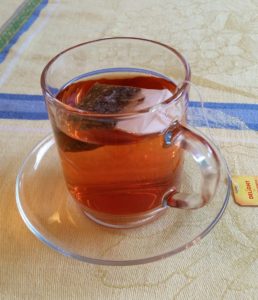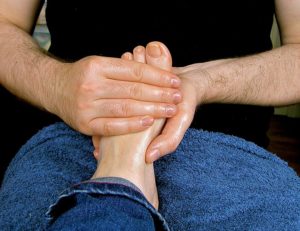 One of the fears about aging is the possibility of developing dementia. Even in healthy older adults it is normal for the brain to slowly shrink with increasing age, and thinking processes can deteriorate. A recent study lasting 78 weeks offers hope to persons already diagnosed with mild cognitive impairment (MCI).
One of the fears about aging is the possibility of developing dementia. Even in healthy older adults it is normal for the brain to slowly shrink with increasing age, and thinking processes can deteriorate. A recent study lasting 78 weeks offers hope to persons already diagnosed with mild cognitive impairment (MCI).
In older adults with MCI, there is an increased risk it can progress to dementia, especially Alzheimer's disease. Studies are finding that doing complex mental activities that stimulate the brain may decrease the risk of cognitive decline and dementia.
In this study, researchers found that doing crossword puzzles was better than doing computer games in improving memory loss and thinking processes, and slowing the progression of decline in persons already diagnosed with MCI. The crossword puzzle group also showed less decline in daily activities, and MRIs showed fewer decreases in brain size (hippocampal volume and cortical thickness).
Persons (average age 71.2 years) were randomized to either of the groups, and they did the online games or crossword puzzles (provided by Lumos Labs) at home. Total time spent each day: 30 minutes four times per week.
Are online crossword puzzles better than computer games for persons without any cognitive impairment? This is where it gets interesting - the answer is no. One study found that computer games were better in a group of 18 to 80 year olds, even though doing either results in improvement.
By the way, numerous "brain training" claims by a computer mind games company such as Lumos Labs were viewed as deceptive by the FTC ($2 million fine back in 2016 for all sorts of unsupported claims).
What to do for brain health? The reality is that activities that stimulate the mind (reading, art, computer games), getting vaccines in adulthood, and exercise/physical activity are all good for the brain. And of course, eating well (especially more fruits, berries, nuts, and eggs) and getting enough sleep. Avoid anticholinergic medicines and smoking.
Mild cognitive impairment (MCI) can even improve on its own without any special treatments - even in adults 65 years or older.
From Medical Xpress: Crossword puzzles beat computer video games in slowing memory loss
A new study by researchers from Columbia University and Duke University published in the journal NEJM Evidence shows that doing crossword puzzles has an advantage over computer video games for memory functioning in older adults with mild cognitive impairment. ...continue reading "Crossword Puzzles Are Good For the Brain"
 Memory declines over the years as we age. For some it can be mild (being forgetful), but very severe for some others. The good news is that there are things we can all do to prevent, slow, or even reverse (!!) the memory decline. Studies suggest the key is adopting healthy lifestyle habits.
Memory declines over the years as we age. For some it can be mild (being forgetful), but very severe for some others. The good news is that there are things we can all do to prevent, slow, or even reverse (!!) the memory decline. Studies suggest the key is adopting healthy lifestyle habits.
 Choline appears to be a neglected nutrient. It is essential for healthy brain functioning, yet researchers of a
Choline appears to be a neglected nutrient. It is essential for healthy brain functioning, yet researchers of a  Walking may be the best way to deal with arthritis pain in the knees (knee osteoarthritis) and to slow its progression. Yes, rather than resting arthritic knees, the best treatment appears to be walking.
Walking may be the best way to deal with arthritis pain in the knees (knee osteoarthritis) and to slow its progression. Yes, rather than resting arthritic knees, the best treatment appears to be walking. Some good news. A study found that frequent consumption of foods and beverages containing flavonoids by elderly women had health benefits. Flavonoids are compounds found naturally in plants, and that have health-promoting effects.
Some good news. A study found that frequent consumption of foods and beverages containing flavonoids by elderly women had health benefits. Flavonoids are compounds found naturally in plants, and that have health-promoting effects. Many of us do not get enough sleep at night. Unfortunately, this is bad for our health. Another
Many of us do not get enough sleep at night. Unfortunately, this is bad for our health. Another  It seems that every so often another study finds that daily coffee consumption is healthy for a person. A recent
It seems that every so often another study finds that daily coffee consumption is healthy for a person. A recent 